DPNSEE publishes here news from our member organisations and countries of South East Europe related to outbreak of the corona virus COVID-19 in the region.
8 November
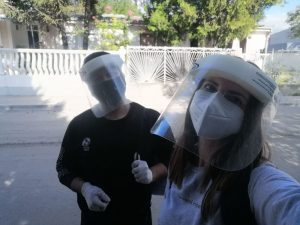 Healthy Options Project Skopje (HOPS) implements several activities in scope of the project “Prevention of COVID-19 among drug users, sex workers and their families” financially supported by the Government of the Republic of Northern Macedonia, through the Program for financing the program activities of associations and foundations for measures to deal with COVID -19 crisis. Read more in the news here>>>.
Healthy Options Project Skopje (HOPS) implements several activities in scope of the project “Prevention of COVID-19 among drug users, sex workers and their families” financially supported by the Government of the Republic of Northern Macedonia, through the Program for financing the program activities of associations and foundations for measures to deal with COVID -19 crisis. Read more in the news here>>>.
10 August
DPNSEE President Nebojša Đurasović participated in one of the Facilitated Groups focused on Western Balkans to investigate the Impact on drug use and patterns and drug-related harms organised by the European Monitoring Centre for Drugs and Drug Addiction.
6 August
DPNSEE hosted the Donor conference for vulnerable populations in South East Europe on Thursday 6 August 2020. The aim of the Conference was to present the needs and potential projects of vulnerable populations in South East Europe and establish better communication, coordination and cooperation between service providers and public and private funding programmes. 47 representatives of civil society organisations, international organisations and donor community participated.
More about the Conference is available following this link>>>.

16 July
DPNSEE held today the Conference “Social, mental and economic consequences of the coronavirus pandemic to the vulnerable populations in SEE: Do we know them and how to recognise and respond to them?” with support of the European Monitoring Centre for Drugs and Drug Addictions and Correlation – Harm Reduction Network.

1 July
Montenegrin civil society organisations and DPNSEE members Cazas and Juventas warned that “The coronavirus epidemic should not distract from the need for effective HIV harm reduction and prevention programs, as quality and sustainable prevention programs yield excellent results in controlling the HIV epidemic among vulnerable populations”. More in the article (in Montenegrin) following this link>>>.
22 June
 Philanthropy, supported by the Government of Switzerland, continued providing humanitarian assistance to beneficiaries exposed to higher risk of COVID-19 infection. COVID-19, lasting longer than three months in Serbia, additionally threatened material and health well-being of families exposed to poverty. In collaboration with the Centres for Social Work, village councils and associations of pensioners, Philanthropy organised distribution of food, personal hygiene items and sanitation material for 950 families in Kragujevac, Kraljevo and Belgrade. Assistance was provided to older persons living in rural areas, persons living with chronic diseases, persons at risk of homelessness and persons living with HIV/AIDS.
Philanthropy, supported by the Government of Switzerland, continued providing humanitarian assistance to beneficiaries exposed to higher risk of COVID-19 infection. COVID-19, lasting longer than three months in Serbia, additionally threatened material and health well-being of families exposed to poverty. In collaboration with the Centres for Social Work, village councils and associations of pensioners, Philanthropy organised distribution of food, personal hygiene items and sanitation material for 950 families in Kragujevac, Kraljevo and Belgrade. Assistance was provided to older persons living in rural areas, persons living with chronic diseases, persons at risk of homelessness and persons living with HIV/AIDS.
 19 June
19 June
The Drug Policy Network South East Europe coordinates activities of the Support. Don’t Punish campaign in South East Europe around the Global Day of Action 26 June – which is also the United Nations’ International Day against Drug Abuse and Illicit Trafficking. The list of activities in the campaign are in the news you can find here>>>.
13 June
DPNSEE Board member gave an excellent insight COVID-19 and harm reduction in Greece – observations from inside the scenery at the Correlation webpage. You can find it here>>>.
10 June
The Coalition prEUgovor presented today their Report on Progress of Serbia under chapters 23 and 24 of the European Union accession negotiations – May 2020. The report indicates, among others, that “Restricted movement and slowed-down work of institutions affected especially vulnerable groups“. Read more in our news here>>>.
8 June
DPNSEE Executive Director Milutin Milošević spoke this morning at TV Pink about involvement of South East Europe in drug related criminal worldwide. That included actual information about drug market during coronavirus outbreak.
(video in Serbian)
4 June
 In scope of the Support. Don’t Punish global advocacy campaign calling for better drug policies that prioritise public health and human rights, DPNSEE launched a regional campaign using social media to spread messages around. We prepared a set of up to 20 messages with combination of quotes from Kofi Annan‘s speeches and appropriate photographs, ready for use in Facebook, Tweeter and Instagram. They will be posted throughout June 2020, most frequently around 26 June, the Global Day of Action of the Support. Don’t Punish campaign and the International Day Against Drug Abuse and Illicit Trafficking.
In scope of the Support. Don’t Punish global advocacy campaign calling for better drug policies that prioritise public health and human rights, DPNSEE launched a regional campaign using social media to spread messages around. We prepared a set of up to 20 messages with combination of quotes from Kofi Annan‘s speeches and appropriate photographs, ready for use in Facebook, Tweeter and Instagram. They will be posted throughout June 2020, most frequently around 26 June, the Global Day of Action of the Support. Don’t Punish campaign and the International Day Against Drug Abuse and Illicit Trafficking.
3 June
Denis Dedajić, the DPNSEE Vice-President and President of the member organisation Margina was one of the speakers at the webinar on “Outreach Work during the Covid-19 crisis” organised by Correlation – European Harm Reduction Network.
30 May
The Union of people living with HIV in Serbia held the International AIDS Candlelight Memorial on Saturday 30 May to raise social consciousness about HIV and AIDS. Organisation Philanthropy prepared packages with food and hygienic materials for PLHIV in hard living conditions hit by COVID-19. Read more at the news on our website here>>>.

27 May
SEE was mentioned quite a few times at the Roundtable “Responses to HIV and TB in times of COVID-19 – strengthening engagement with civil society and communities in Eastern Europe and Central Asia” organized by Developing Country NGO delegation of the Global Fund Board and the Global Fund Secretariat. Miloš Perić, Program Coordinator at the Association Duga from Serbia and Silvia Asandi, General Director of the Romanian Angel Appeal Foundation presented examples of good practice during the agenda point Maintaining and adapting HIV and TB responses.
24 May
The Institute for Public Health of Montenegro formally announced that there are no more people with COVID-19 in the country!
21 May
 A coordination meeting on the Support. Don’t Punish campaign was held over Zoom. This year again, DPNSEE will coordinate the campaign in the region. It will also contribute to the efforts on ensuring sustainability of the services to people who use drugs which may be jeopardised due to coronavirus outbreak.
A coordination meeting on the Support. Don’t Punish campaign was held over Zoom. This year again, DPNSEE will coordinate the campaign in the region. It will also contribute to the efforts on ensuring sustainability of the services to people who use drugs which may be jeopardised due to coronavirus outbreak.
 ***
***
Just after our meeting, the “Countdown to the Global Day of Action” webinar was held, organised by the campaign organisers. aimed for us for discussions on community mobilisation ahead of the SDP Global Day of Action.
19 May
The Office for Combating Drugs of the Government of the Republic of Serbia obtained funds for protective material against coronavirus intended for vulnerable social groups. Representatives of the civil society organizations that are in direct contact with over 400 members of vulnerable categories received masks, gloves and disinfectants.
17 May
Association Duga from Šabac, Serbia, launched a web campaign to collect funds for urgent support to vulnerable populations: food and hygienic material. More at the campaign web page here>>>.
15 May
 The Union of Organizations of Persons Living with HIV/AIDS in Serbia (USOP) published a very practical brochure on “What do people living with HIV need to know about the new Coronavirus called COVID-19?” with the support from the French Embassy in Serbia. The brochure is available in Serbian, English and French.
The Union of Organizations of Persons Living with HIV/AIDS in Serbia (USOP) published a very practical brochure on “What do people living with HIV need to know about the new Coronavirus called COVID-19?” with the support from the French Embassy in Serbia. The brochure is available in Serbian, English and French.
13 May
Association Margina re-opened their drop-in centres, in Tuzla and now in the new premises in Zenica, Bosnia Herzegovina. Users can enter only one at a time, obligatory with masks and gloves.
12 May
Starting May 15th (end of the state of emergency in Romania), ARAS will reopen its outreach activities and will open the drop in centre for 5 days a week (instead of 2, as it was during the emergency state). ARAS reached out to all public institutions with responsibilities in the medical/social fields: we offered out expertise, knowledge and human resources to support the fight against COVID19 in the vulnerable communities of Bucharest. Discussions have started with the Ministry of Internal Affairs and with the city hall of one sector of the City. They plan to distribute masks to all our beneficiaries in our services, if they manage to find the necessary funding for this.
11 May
The Prevent Association signed an agreement with the Ministry of Health of Serbia for implementation of the harm reduction program for 2020 and started working on 11 May. Field work was renewed and a drop in centre was opened.
8 May
Civica Mobilitas Macedonia awarded five organisations with grants for fighting coronavirus in the areas of marginalized communities, education, human rights and children, youth and students. Our member organisation HOPS is one of the granted organisations for their humanitarian action for people and children who use drugs, as well as sex workers and their families.
7 May
Alliance of Non Governmental Organisations for Drugs and Addictions in Slovenia is currently in preparation for a new questionnaire for their members about COVID-19 and supply for its next phase. The results are expected in the second part of May 2020.
6 May
Civil society organisations from North Macedonia extended a public protest for untimely and inappropriate behaviour of institutions in solving the problems of vulnerable and marginalized communities. Read the protest (in Macedonian) here>>>.
4 May
Drop-in centre of the organisation Juventas returns to regular working hours from today.
3 May
Promising news from the region!
For the first time after the outbreak in the country (4 March, almost two months ago), there were no new cases of coronavirus infection in Slovenia. A great and promising news>>>
There were no new cases in Montenegro for the last 4 days.
In the Tuzla canton, in Bosnia Herzegovina, there were no new case for 18 days. All those who have been infected are cured – the last one left hospital this morning.
2 May
Prometheus reports about the Streetwork Project and crowdfounding campaign they have launched to raise food, bottled water, juices, snacks, protective medical material (masks, gloves, antiseptics) and personal hygiene items for homeless people in Athens and Thessaloniki >>>.
30 April
Drop-in centre of the Association Terra, Croatia works according to the old working hours (from 10 am to 5 pm). All services are provided, but there is a limited number of people who can stay in the drop-in at the same time. Upon entry, users must disinfect their hands, shoes and wear a mask. We still distribute masks to users who do not have them. There has been a noticeable increase in the number of users since the introduction of public transport.
28 April
Talas – Serbia based media portal “about politics, economy and ideas” published an article about effects of the coronavirus on people who use drugs in Serbia. The article is based on information published by DPNSEE and interviews with Milutin Milošević, our Executive Director, and Irena Molnar, the Executive Director of our member organisation Re Generacija. The article, in Serbia, is available here>>>.
27 April
The civil society organisations from Croatia started operating all harm reduction activities from 27 April 2020, still respecting all protective measures (use of masks, gloves, limited number of the person inside the space, etc.).
HELP are using only oral rapid test for HIV and hepatitis. Blood testing is still not recommended.
26 April
Terra, Croatia, just announced that they extend their working times. From tomorrow, their drop-in centre will be open every working day from 10 to 17. Needle exchange is still possible through the window. Clients can use showers and laundry. They can also enter the centre but only if their hands and shoes are disinfected at entrance and they wear masks, one at the time, for their personal hygienic needs. Daily shelter and kitchen are still not available.
23 April
DPNSEE held today the on-line Conference on protection of vulnerable populations in South East Europe, with support of the Service for Combatting Drug Abuse at the Croatian Institute for Public Health and the United Nations Office on Drugs and Crime – UNODC Programme Office in Serbia.
More than 60 representatives of civil society organisations, national drug agencies, international organisations and agencies and donor community participated.
22 April
On the initiative of the Municipality of Athens and in collaboration with organisations OKANA and KETHEA a shelter for homeless users of psychoactive substances opened its doors in Athens on 22 April 2020. Read more in the news here>>>.
***
The needle exchange programs in Bulgaria, which were closed on 16 March, re-opened in Sofia on 22 April.
21 April
Civil society organisations call the Government of North Macedonia to change their decision to drastically reduce financial support to the civil society. Read more in the news (in Macedonian) here>>>.
20 April
Denis Dedajić, President of the Association Margina from Bosnia and Herzegovina sent us a short summary of the situation from March 1 to April 10.
Read about it in the news on our website here>>>.
16 April
The Belgrade Centre for Security Policy published a report on criminal activities in the Western Balkans during the COVID-19 outbreak – Crime in the Western Balkans during the coronavirus – early findings. The report was prepared by their researcher Saša Đorđević.
With information we received from our member organisations from around the region, DPNSEE provided significant contribution to the report section that deals with Narcotics, but also general comments and proposals for recommendations.
Read more in the news here>>>
15 April
DPNSEE provided Duga with an amount of hygienic material, masks and food for vulnerable populations in their minicipality. Duga also managed to get bread as donation from the organisation Human Heart of Šabac.
The Duga team distributed 122 humanitarian packages to 251 people. Read more following this link>>>.
13 April
Greek organisations Positive Voice and Prometheus started street work to support vulnerable populations during the coronavirus outbreak. Read about it in the news on our webpage here>>>.
***
The meeting of the DPNSEE Board was held by Zoom on 13 April 2020. The meeting was scheduled to discuss the current situation related to outbreak of the coronavirus in South East Europe and plan future steps. The news from the meeting are available here>>>.
11 April
An update on activities related to coronavirus in Slovenia is presented in our news following this link>>>.
***
The extraordinary situation with coronavirus haven’t prevented Duga outreach team to continue HIV testing in cities around Serbia. On 9 April they have tested interested people in Kragujevac, Central Serbia, while the day after they went to Novi Sad in the Northern province of Vojvodina.
10 April
 Timok Youth Centre from Serbia and DPNSEE continue translating and publishing UNODC documents in Serbian. Now this includes three infographics on COVID-19 – HIV prevention, treatment, care and support for people who use drugs:
Timok Youth Centre from Serbia and DPNSEE continue translating and publishing UNODC documents in Serbian. Now this includes three infographics on COVID-19 – HIV prevention, treatment, care and support for people who use drugs:
Uloga zajednice (originally: The role of the communities, pdf 612KB)
Saveti za korisnike (Active tips to share with clients, pdf 632KB)
Saveti za pružaoce usluga (Advice for service providers, pdf 632KB)
***
DPNSEE concluded the round of video calls with member organisations, by countries, to discuss with them about:
- What is the coronavirus situation in your country regarding drug policy (especially how the officials treat our key populations)?
- What happens with the treatment of the key populations and which are their most important problems
- What is new with the drug supply and how the people who use drugs are dealing with it?
- How are your organisations dealing with the situations, your staff and their protection and other problems?
The information obtained will be used to plan future steps in responding to the coronavirus outbreak.
9 April
Aksion Plus published an information at their website on Ensuring the continuity of service during pandemics! It includes information on What are the risks for people who use drugs (PWUD) during COVID-19 pandemics? and Preventive measures against COVID-19 transmission in environments frequented by PWUD
To download the text in Albanian, click here>>>.
***
Our newest member organisation Philanthropy, in collaboration with the City of Kragujevac, Serbia and the local Centre for Social Work, is opening the urgent shelter for socially vulnerable homeless people in Kragujevac. This service will enable protection of beneficiaries’ health well-being and prevent COVID-19 spreading.
DPNSEE managed to provide Philanthropy with an amount of hygienic material, masks and clothes for users of their centre.
8 April
DPNSEE had signed the “Protecting our co-workers during COVID-19: A Social Security Protocol for Civil Society” published by CIVICUS – a global alliance of civil society organisations and activists dedicated to strengthening citizen action and civil society throughout the world. Read about the Protocol here>>>.
***
Due to the current situation, Labyrinth‘s drop in centres on Kosovo in Prishtina, Gjilan and Prizren are now open on Tuesdays, Wednesdays and Thursdays from 10:00 a.m. to 2:00 p.m. All protective measures have been taken against the COVID-19 virus, including disinfection of the premises of their centres.
7 April
Organisation Terra from Rijeka provides food for homeless people. Their drop-in centre maintains needle exchange programme, but also gives away reusable masks and provides psychological support to people who use drugs and other vulnerable populations. Read more at the news following this link>>>
6 April
 The Foundation for Open Society Macedonia, in cooperation with the Macedonian Red Cross, donated 100.000 USD for humanitarian support including food and hygienic packages for Roma population. It will be distributed to 2.000 families with around 10.000 people in 9 cities and villages across the country. Our member organisation HOPS will be among 6 civil society organisations that will organise the delivery.
The Foundation for Open Society Macedonia, in cooperation with the Macedonian Red Cross, donated 100.000 USD for humanitarian support including food and hygienic packages for Roma population. It will be distributed to 2.000 families with around 10.000 people in 9 cities and villages across the country. Our member organisation HOPS will be among 6 civil society organisations that will organise the delivery.
More (in Macedonian) is available following this link>>>.
4 April
Organisation Institute from Pula, Croatia and company Neosalon Superius donated masks to Terra which will cover the needs of their clients.
3 April
Juventas strongly condemned the publication of the list with data on over 60 people suffering from COVID-19 and calls on the authorities to urgently find out how this serious incident occurred and stop similar human rights violations of Montenegrin citizens. Read their communique (in Montenegrin) here>>>.
2 April
We got a comprehensive information about activities of our member organisation Juventas from Montenegro about their activities on coronavirus outbreak. Have a look at http://dpnsee.org/2020/04/02/juventas-keeps-providing-services/
1 April
Four young volunteers from Prevent returned from the voluntary service in Cyprus by a special flight organised by the Government of Serbia. The plane also picked Serbian citizens from Thessaloniki.
 After landing to Belgrade they were sent to a quarantine in the pupil’s campus “Patrijarh Pavle” where 11 people were diagnosed with the coronavirus – luckily, no one from the four Prevent volunteers. Yesterday, they were released home for a self-isolation.
After landing to Belgrade they were sent to a quarantine in the pupil’s campus “Patrijarh Pavle” where 11 people were diagnosed with the coronavirus – luckily, no one from the four Prevent volunteers. Yesterday, they were released home for a self-isolation.
We hope that they haven’t caught the virus and wish them to stay healthy.
***
ARAS translated and published in Romanian the INPUD’s instructions for protection against coronavirus for people who use drugs.
The version in Romanian is available at their website here>>>.
31 March
 Timok Youth Centre from Serbia translated and published in Serbian the UNAIDS document “Suggestions about treatment, care and rehabilitation of people with drug use disorder in the context of the COVID-19 pandemic“.
Timok Youth Centre from Serbia translated and published in Serbian the UNAIDS document “Suggestions about treatment, care and rehabilitation of people with drug use disorder in the context of the COVID-19 pandemic“.
The version in Serbian is available at their website here>>>.
The original document is available at the UNAIDS website following this link>>>.
***
An information from HOPS – Options for healthy living Skopje on their services during COVID-19 is available following this link>>>.
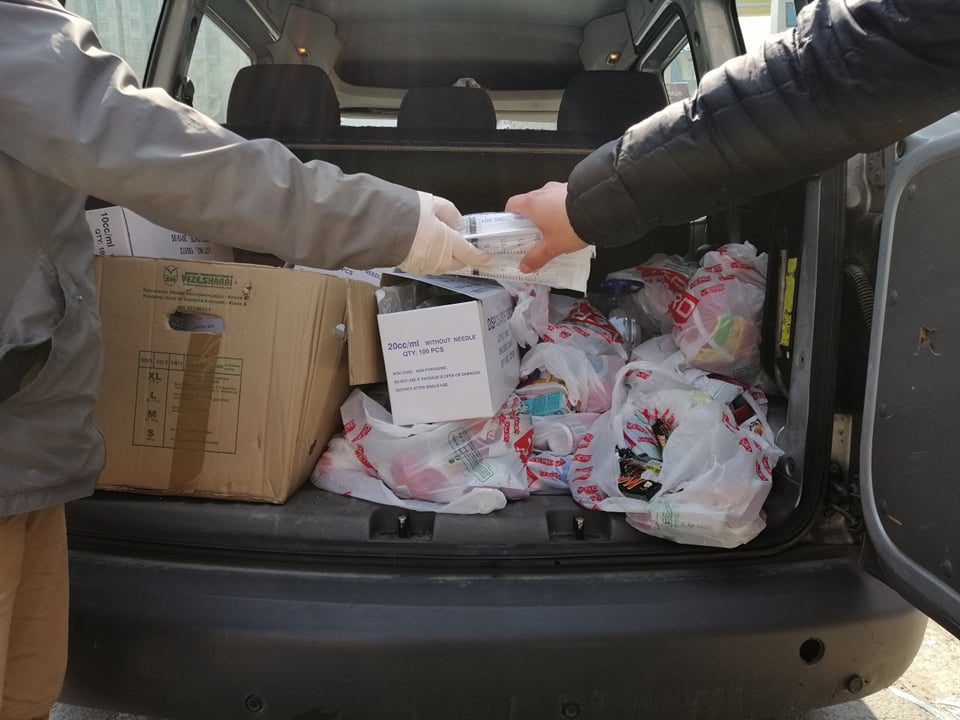
30 March
 The local users union PeersNups (Peer Network of Psychoactive Substances) translated into Greek and published INPUD’s brochure that provides advice on coronavirus people who use psychoactive substances.
The local users union PeersNups (Peer Network of Psychoactive Substances) translated into Greek and published INPUD’s brochure that provides advice on coronavirus people who use psychoactive substances.
28 March
HOPS from Macedonia closed their drop-in centres but delivers sterile equipment and other material on call. Their administrative staff works from home.
27 March
The practitioner in CAZAS, Montenegro Nikolina Tomović prepared the text on “Patient rights in the time of corona“. The text is available at their website here>>>.
26 March
 Timok Youth Centre from Serbia translated and published in Serbian the UNAIDS leaflet “What people living with HIV need to know about HIV and COVID-19“.
Timok Youth Centre from Serbia translated and published in Serbian the UNAIDS leaflet “What people living with HIV need to know about HIV and COVID-19“.
The version in Serbian is available at their website here>>>.
The original document is available at the UNAIDS website following this link>>>.
***
Juventas from Montenegro is still providing services for PWUD/PWID, SW and former prisoners:
- Distribution and exchange sterile injecting equipment (needles, syringes, cookers, alcohol, tourniquets, distilled water) every day except weekend from 17h to 21h, and outreach once a week from 20 to 22h. They are now doing outreach just in Podgorica and in this week they have distributed bigger amount of equipment to our clients outside Podgorica, due to the new measures – ban of traffic between cities. They will distribute more, if needed.
- Distribution of condoms and lubricants, in above mentioned working hours.
- Washing and drying clothes service, every working day from 17h to 21h.
- Online consultations and consultations over the phone, with their peer workers, social workers doctor and psychologist.
- Lunch packages with essential groceries, once a week.
25 March
ARAS from Romania reported that they face the problem of drug users returning to Romania from Italy and wanting to enter the methadone treatment. But, they cannot accept new patients anymore, because this means a long period of coming daily to our centre and they cannot guarantee it will stay open.
23 March
Our member organisation Labyrinth from Kosovo sent us information about their activities related to coronavirus outbreak:
From the last week, we have temporarily closed the Drop in. Our clients can’t stay in premises of Labyrinth, but they continue to take all the services we have, especially the Methadone Maintenance Therapy. From this week 120 clients that are in programme of Methadone Maintenance Therapy are separated in three groups, and they take away methadone for one week.
Clients can take sterile equipment. We give them information how to protect themselves from covid 19, including IEC materials, gloves, disinfectant. Unfortunately we don’t have enough masks to give them.
We have temporarily interrupted the psycho-social services, outreach activities.
From this week only necessary staff is working. Also we have started to disinfect the Labyrinth premises.
21 March
 ARAS translated into Romanian the UNAIDS leaflet “What people living with HIV need to know about HIV and COVID-19”.
ARAS translated into Romanian the UNAIDS leaflet “What people living with HIV need to know about HIV and COVID-19”.
This version is available at their website here>>>.
 20 March
20 March
Organisations Cazas and Juventas published information and instructions for protection against coronavirus in Montenegrin.
18 March
Organisation Juventas from Podgorica, Montenegro prepared “homemade” bottles with alcohol for people who use drugs they serve because the shipment of alcohol wipes they ordered was blocked at the border. A great initiative and true commitment!
16 March
Team of the Association Duga from Šabac, Serbia, visited suburbs with Roma populations and various vulnerable populations to inform them about preventive measures against coronavirus. They dedicated special attention to those who recently returned from the areas with high epidemics – Italy, Germany and Austria – who either came to visit their families back home or returned from seasonal work (especially sex workers).
This action was supported by the Regional Programme on Local Democracy in the West Balkans (ReLOaD), financed by the European Union and implemented by the UNDP Office in Serbia.

14 March
Together with our member organisations Prevent and Re Generation, DPNSEE have prepared information and instructions for protection against coronavirus in Serbian for people in risk from vulnerable populations we support. We used several sources: INPUD, Leafly, Crew and BesD. These instructions will be available in various institutions and civil society organisations in Serbia.
13 March
On the initiative from civil society organisations, following the DPNSEE Public appeal to protect vulnerable groups from coronavirus COVID-19, a meeting was called by the Office for Combating Drugs of the Government of Republic of Serbia to discuss the measures to protect people who use drugs and other connected vulnerable groups. The meeting was held on 13 March with representatives of the Office, Ministry of Health, Special Hospital for Addictions and four civil society organisations. News about the meeting is available following this link>>>.
 12 March
12 March
DrogArt translated into Slovenian and published information and instructions for protection against coronavirus.
9 March
DPNSEE sent a new letter encouraging member organisations to continue their work and three leaflets we prepared that may be of use when working with key populations and staff:
- Basic protective measures against the new coronavirus
- Basic protective measures against the new coronavirus for drug users and
- Basic protective measures against the new coronavirus for cannabis users
We offered support in translating and publishing the leaflets.
7 March
Association Margina from Tuzla, Bosnia Herzegovina had a meeting with the people who use drugs they serve. Besides general issues (creating a community organisation, initiative for opening a public institution for addictions and therapy in the Tuzla canton, etc.) a special part of the meeting was dedicated to prevention measures for coronavirus.
5 March
Association “Prevent” shared larger quantities of sterile equipment to the users and other key populations they support in Belgrade, to make sure that they have it and use it in case of restrictions of move which are expected.
 2 March
2 March
DPNSEE published a Public appeal to protect vulnerable groups from coronavirus COVID-19
Drug Policy Network South East Europe shares concern that the health systems may not have fully in their sight the key populations we are supporting (people who use drugs, sex workers, LGBTI and MSM, homeless, etc.) and that these populations, being side-lined in the community, may not be well informed about the threat and measures they should take to protects themselves.
28 February
Our colleagues from member organisation Terra, Rijeka, Croatia informed us that controls at the borders are reinforced, especially those with Italy. They keep informing users about the protection measures. The users show no sign of panic which is already present in some media. They give away vials with alcohol antiseptic. This is very important because most of the users they serve are homeless.
***
Slovenian authorities accepted the invitation from the Alliance of Non Governmental Organisations for Drugs and Addictions in Slovenia. The meeting is scheduled for Monday 2 March.
Luckily, there are no cases of corona virus in Slovenia.
27 February
The Alliance of Non Governmental Organisations for Drugs and Addictions in Slovenia send an invitation for a meeting with governmental institutions. The invitation was sent to the Ministry of Health, Ministry of Labour, Family, Social Affairs and Equal Opportunities, National Institute for Public Health and Center for Treatment of Drug Addiction at Psychiatric Clinic Ljubljana.
***
Croatia confirms third case of corona virus infection, this time in the northern Adriatic city of Rijeka where our member organisation Terra works – https://t.co/c3bApgAoJo. Our thoughts are with our colleagues there.
26 February
Last two days, the DPNSEE Board had on-line communications, including a few experts from inside the Network, on the threat of coronavirus outbreak in South East Europe following the first cases which appeared in neighbouring Italy. The first case of the virus were also reported in Croatia.
A Letter to member organisations inviting them to prepare for the coronavirus outbreak with brief instructions is being prepared and will be shared as soon as possible.
***
North Macedonia’s Health Ministry today confirmed the first case of a corona virus infection in the country – https://t.co/cHyFTqZgVt.
A woman from Skopje seems to have contracted the virus after returning from a one month stay in Italy. Our colleagues from HOPS and Coalition “Margini” operate in that city.
***
Greece’s first confirmed COVID-19 case, a 38-year-old woman admitted to a special ward at AHEPA hospital in Thessaloniki, was reported to be in relatively good condition on Wednesday – https://t.co/dB1B0YWEwg
***
 Our member organisation Cazas from Montenegro posted a tweet advising those interested to contact the national Institute for public health for more information about the corona virus.
Our member organisation Cazas from Montenegro posted a tweet advising those interested to contact the national Institute for public health for more information about the corona virus.

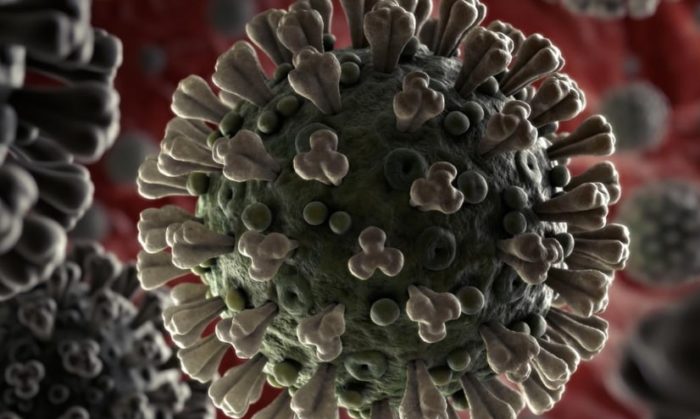







 The goal is to ensure that laws protect the health and wellbeing of individuals and communities and that they adhere to international human rights standards. Well-designed laws can help build strong health systems; evaluate and approve safe and effective drugs and vaccines; and enforce actions to create healthier and safer public spaces and workplaces.
The goal is to ensure that laws protect the health and wellbeing of individuals and communities and that they adhere to international human rights standards. Well-designed laws can help build strong health systems; evaluate and approve safe and effective drugs and vaccines; and enforce actions to create healthier and safer public spaces and workplaces.
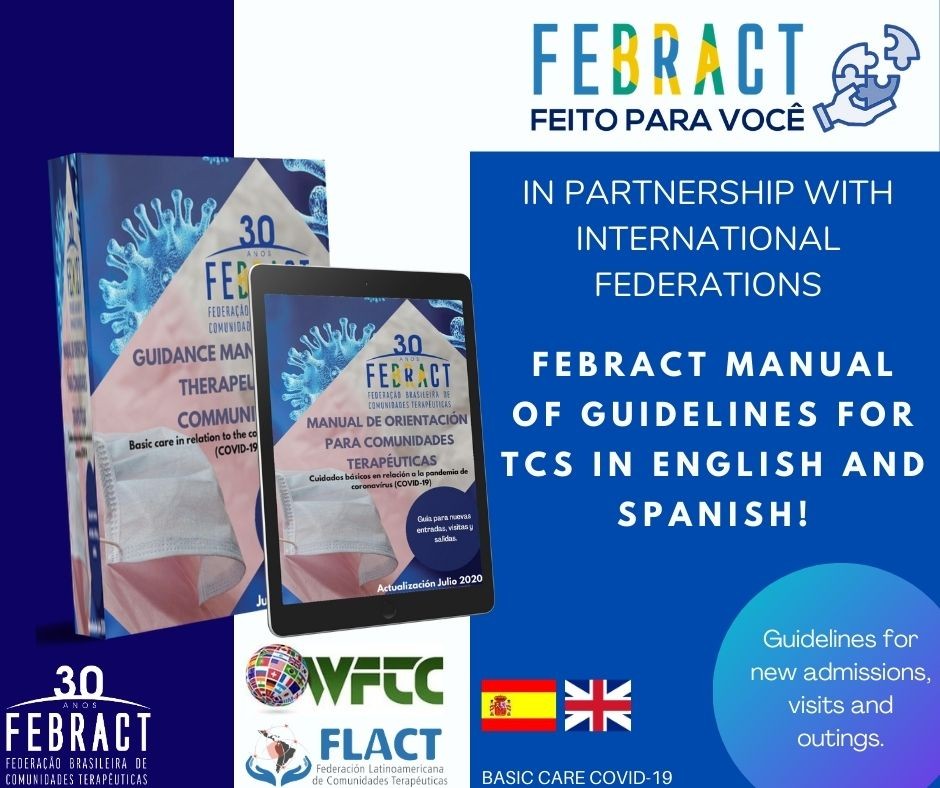


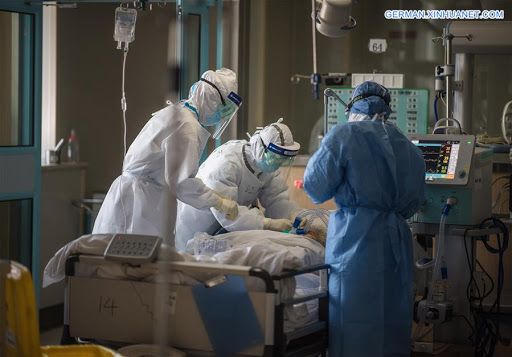
 The IDPC Secretariat have been continuing to seek ways to better support information sharing and lessons learned from across the network as we face the challenges brought by COVID-19 and the responses governments are taking. In April, they launched a survey for their members (in
The IDPC Secretariat have been continuing to seek ways to better support information sharing and lessons learned from across the network as we face the challenges brought by COVID-19 and the responses governments are taking. In April, they launched a survey for their members (in 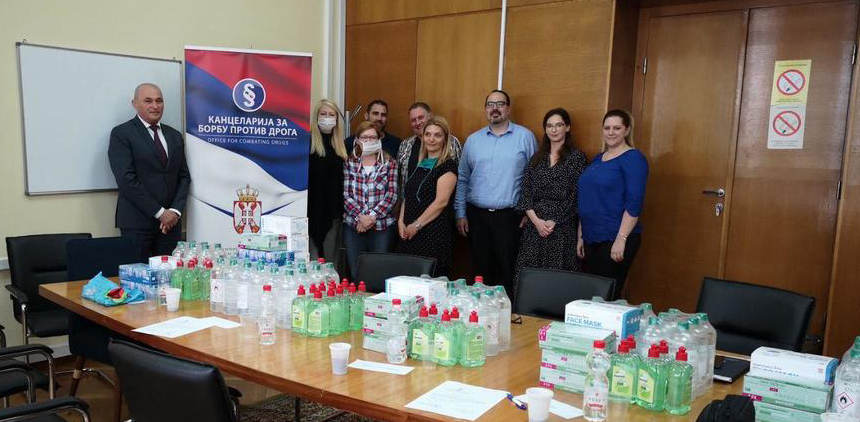

 The Global Fund, the largest multilateral funder of health systems worldwide, is providing immediate funding of up to US$1 billion to help countries fight COVID-19, mitigate the impacts on lifesaving HIV, TB and malaria programs, and prevent fragile health systems from being overwhelmed, through grant flexibilities and the COVID-19 Response Mechanism.
The Global Fund, the largest multilateral funder of health systems worldwide, is providing immediate funding of up to US$1 billion to help countries fight COVID-19, mitigate the impacts on lifesaving HIV, TB and malaria programs, and prevent fragile health systems from being overwhelmed, through grant flexibilities and the COVID-19 Response Mechanism. The COVID-19 Response Mechanism (C19RM), approved in April 2020, authorizes US$500 million in funding in addition to grant flexibilities. C19RM can be used across the three diseases and the health system, even if a country only has a single Global Fund grant for one component. The CCM will assess the most urgent needs and direct activities through one or more of the principal recipients.
The COVID-19 Response Mechanism (C19RM), approved in April 2020, authorizes US$500 million in funding in addition to grant flexibilities. C19RM can be used across the three diseases and the health system, even if a country only has a single Global Fund grant for one component. The CCM will assess the most urgent needs and direct activities through one or more of the principal recipients.
 The report is the first in a series of briefings resulting from an EMCDDA ‘trendspotter’ study, launched in April to explore the impact of COVID-19 on the drug situation and responses to it. The agency’s
The report is the first in a series of briefings resulting from an EMCDDA ‘trendspotter’ study, launched in April to explore the impact of COVID-19 on the drug situation and responses to it. The agency’s  To read the study
To read the study